May 18-22
The clever monkey(Սեղմեք և դիտեք տեսանյութը)
Answer the questions(Պատասխանեք հարցերին)
Where did the monkey live?
What kind of monkey it was?
Why did the crocodile decide to eat the monkey’s heart?
What did the monkey say to the crocodile when it wanted to eat the monkey?
What kind of animals were the crocodiles?
Were the crocodiles greedy?
Continue the sentences(Շարունակեք նախադասությունները)
The crocodile was hungry, so the monkey ………
The next day the crocodile asked for two apples to ……….. (որպեսզի տանի մի խնձորը կնոջը)
Every day the crocodile swam to the island to ……..(որպեսզի լսեր կապիկի պատմած հեքիաթները)
The crocodile wanted to eat the monkey’s heart to ………… .
The monkey said that his heart was ………. .
The crocodiles were very ……….. (ագահ).
Past Worksheet
edit-past simple
May 11-15
Lesson 1(April 13)
The clever monkey(Սեղմեք և դիտեք տեսանյութը)
Once upon a time, there was a clever monkey. He lived on a beautiful island(կղզի), in an apple tree. One day, a crocodile swam to the island. ‘I’m hungry,’ he said.
So the monkey threw a red apple to the crocodile. The crocodile munched and munched. The next day, the crocodile came back. ‘Please, may I have two apples?’ he asked. He ate one and gave one to his wife.
The crocodile went to see the monkey every day, to listen to his tales and eat his
apples. He wanted to be clever, just like the monkey. The crocodile’s wife had an idea.
‘Why don’t you eat his heart? Then you’ll be clever, just like him!’
The next day, he said to the monkey, ‘Come to my house! We’ll have lunch together, to thank you for the apples.’
But when he arrived, the crocodile snapped and said, ‘Monkey! I want to eat your heart, so I can be as clever as you!’
The clever monkey thought quickly and said, ‘But… I haven’t got my heart here. It’s on the island, in the apple tree.’
They all went back to the island. ‘Wait here, and I will get my heart,’ said the monkey.
The monkey quickly climbed the tree and sat at the top. ‘Oh, Crocodile. You are
greedy. Of course you can’t have my heart. And now, you can’t have my apples!’ And
the clever monkey laughed and laughed!
Learn(Սովորեք)
Throw(նետել)-threw(նետեց)
munch-ճպճպացնել
swim-swam
say-said(ասաց)
eat-ate
give-gave
want-wanted
have-had
snap-snapped(վրա տալ)
think-thought(մտածեց)
go-went
climb-climbed
laugh-laughed(ծիծաղեց)
short-stories-story-time-the-clever monkey(Սեղմեք և կատարեք առաջադրանքները)
Lesson 2
Past Simple
Test 4
May 4-10
Read the Text “My house”. Describe your rooms and compare them. (Կարդացեք տեքստը և այդ օրինակով ներկայացրեք և համեմատեք ձեր սենյակները)
My house
This is my house. It is very big. There are 4 rooms in my house. The living room. It is the biggest room in my house. There is a sofa, a TV, a table and chairs in the living room. We watch TV in the living room.
There is a kitchen in my house. It is smaller than the living room. There is a stove and a fridge in the kitchen. My mother cooks in the kitchen.
There are two bedrooms in my house. My parents’ bedroom is bigger than my bedroom. There is a big bed in my parents’ bedroom. My bed is smaller than their bed. There is a small table with my photo on it. There is a carpet on the floor. It is very soft. I sleep in my bedroom.
There is a bathroom. It is not very big. It is the smallest room in my house. There is a bathtub, a sink and a toilet in the bathroom. We have a shower in the bathroom.
Words to remember
Living room-հյուրասենյակ
bedroom-ննջասենյակ
kitchen-խոհանոց
bathroom-լոգասենյակ
sofa-բազմոց
an oven-գազօջախ
a fridge-սառնարան
carpet-գորգ
floor-հատակ
bathtub-լոգարան
sink-լվացարան
Լրացուցիչ աշխատանք՝ Նախագիծ՝ <Տատիկի հեքիաթները 2080թ.>
Grandma’s tales in 2080
Մասնակիցներ՝ 4-5-րդ դասարանների սովորողներ
Տևողությունը՝ մայիս ամիս
Ընթացքը՝ Սովորողները ձայնագրում են իրենց տատիկների պատմած հեքիաթները մայրենի լեզվով
Նախագծին մասնակցում են խմբերով, խմբում՝ 4 -5 սովորող: Կատարվում է աշխատանքի բաժանում, որից հետո փուլերով կատարում են թարգմանությունը:
Թարգմանությունը կցվում է ձայնագրությանը: Նյութը ներկայացվում է տեսաֆիլմի տեսքով:
Նպատակը՝ Ապահովել հեքիաթների պահպանումն ու փոխանցումը սերնդեսերունդ:
Խումբ 1(պայմանական)
Ալվինա, Անի, Արման, Միքայել Հովհաննիսյան(ձայնագրության պատասխանատու)
Խումբ 2
Հասմիկ, Վահե Գաբրիելյան, Աշոտ, Արեգ Հարությունյան(ձայնագրության պատասխանատու)
Խումբ 3
Անահիտ Առաքելյան, Արգիշտի, Դավիթ Եսայան(ձայնագրության պատասխանատու)
Խումբ 4
Տիգրան Գալստյան, Սամվել Մխիթարյան, Վահան Սեդրակյան, Դավիթ Մուրադյան(ձայնագրության պատասխանատու)
April 27-30
Read “A Special Surprise” Let’s Go 4 Reader(վերջնաժամկետը՝ մինչև շաբաթվա վերջ)
Write a short summary by answering the following questions:(Փոքրիկ պատումի տեսքով ներկայացրու, թե որն էր հատուկ անակնկալը՝ պատասխանելով հետևյալ հարցերին)
- What should they take?
- What shouldn’t they take?
- Where are they going to go?
- What was the special surprise?
Student Book: pg. 64-A(Let’s Talk, CD2-64). Read and learn the dialogue.
Pg. 65-C(CD2-66, 67), D-(CD2- 68)-Learn the Grammar Chant.
Workbook:pg. 64-A, pg. 65-B, C
April 20-24
Lesson 1(April 22)
Ներկայացրեք ձեր ապագա ծրագրերը՝ կապված մասնագիտության հետ:
Օրինակ՝
What are you going to be?
I am going to be a doctor.
Նմանատիպ երկխոսություն մենք կազմել ենք մասնագիտությունների հետ(Student Book: “Hopes and Dreams”-pg. 21, 22, ): Այժմ օգտագործեք to be going to-ն երկխոսության կամ տեքստի մեջ՝ “My Future Profession” վերնագրով:
Learn the words: Student Book, pg. 58-A, B(Practice the sentences), CD2-49, 50, 51
Workbook: pg. 57-D, pg. 58-A, B
Lesson 2(April 24)
Student book: Pg. 60-A(Learn the words), B(Practice the sentences), CD2-55, 56, 57
Workbook: pg. 59-C, D
April 13-17
Lesson 1(April 15)
To be going to(Պատրաստվել …)
Student Book: pg. 56-Future Plans(Ապագա պլաններ)
A-Let’s Talk, CD2-44(Listen and practice the dialogue), pg. 57-D Practice the words, ask and answer(CD2-46, 47)(հարցերի պատասխանները հրապարակեք բլոգում)
Lesson 2(April 17)
Workbook: pg. 56, A, B, pg. 57. C
Make a dialogue. The dialogue on page 56- A will help you(դասագրքի 56- A -ի երկխոսության օրինակով կազմեք երկխոսություն: Հարցրեք ձեր ընկերոջ ապագա պլանների մասին: Պատմեք ձեր ապագա պլանների մասին:)
April 6-10
Lesson 1(April 8)
Activities
Հիշեք՝ ing ավելացնելուց առաջ բառավերջի e տառը դուրս է գալիս՝ write-writing,
իսկ միավանկ բառերի դեպքում, երբ բառում միայն մեկ ձայնավոր հնչյուն կա, վերջին բաղաձայնը կրկնապատկվում է՝ swim-swimming.
Look, he is buying a notebook again.
Use the words in brackets in the Present Continuous(Փակագծերում տրված բառերը օգտագործեք ներկա շարունակական ժամանակաձևով)
Look, he ——————– to school!(go)
Look, he ————— coffee!(drink)
Look, I ——————- !(swim)
Look, she ——————————— her hair!(wash)
Look, it ——————————- its milk!(drink)
Look, we ———————————- in the living room!(dance)
Look, they ————————————- to church!(run)
Now, you ———————————————- an email.(write)
Look, the monkey ————————————- a banana!(eat)
We ———————————– at the moment. (watch TV)
Look, they —————————————- their breakfast!(have)
At the moment father ——————————— a little red car.(drive)
Look, the two little penguins —————————————- !(swim)
The children —————————————– their breakfast now.(have)
workbook: pg. 54-A,B.(ամփոփում)
Lesson 2(April 10)
Read about Easter
Easter is usually in April or May. It is a religious holiday. It celebrates the rebirth of Jesus. At Easter, many people like painting eggs in bright colours.
In England children play a game of rolling eggs down a hill. Many children go on an egg hunt, looking for hidden Easter eggs!
People eat lots of chocolate eggs and chocolate bunnies. In the UK, people also eat hot cross buns and a special Easter cake.
March 30-April 3
Easter(սեղմիր և ծանոթացիր զատկական բառերին )
Read about Easter(Կարդանք Զատիկի մասին)
Easter is usually in April or May. It is a religious holiday. It celebrates the rebirth of Jesus. At Easter, many people like painting eggs in bright colours.
In England children play a game of rolling eggs down a hill. Many children go on an egg hunt, looking for hidden Easter eggs!
People eat lots of chocolate eggs and chocolate bunnies. In the UK, people also eat hot cross buns and a special Easter cake.
New words
religous-կրոնական
celebrates-խորհրդանշել
rebirth-վերածնունդ
rolling eggs-ձվերը գլորել
down a hill-բլրից ներքև
an egg hunt-ձվի որոնում
hidden-թաքցրած
bunny-նապաստակ
hot cross buns-թխվածք
Interesting Easter Worksheet(Հետաքրքիր զատկական առաջադրանքների թերթիկ)
Student book: pg. 50- A(CD2-32)-Listen and Practice the Words
Workbook: pg. 50-A,B,
Student Book: pg. 52-A(Look and answer the questions), CD2-38
Workbook: pg. 52-A,B
Ուսումնական Գարուն
Tom Thumb
March 16-20
Student book: pg. 50- A(CD2-32)-Listen and Practice the Words
CD2-33, 34-Practice the Sentences
pg. 51-C(Practice the question and answer):Նկարին նայելով՝ պատասխանեք ըստ տրված օրինակի: Օգտագործեք
man-տղամարդ
woman-կին
boy-տղա
girl-աղջիկ
բառերը:
e.g. Which boy is Brian’s older brother?
He is the boy with curly brown hair and brown eyes.
He is the boy in shorts and a blue, striped T-shirt.
With-արտաքինի նկարագրության համար
In-հագուստի նկարագրության համար:
- Վերցրեք ընտանեկան լուսանկար, ցանկալի է ամառային հանգստի: Ներկայացրեք այդ նկարում ներկա ձեր բարեկամներին, ընտանիքի անդամներին՝ ըստ արտաքինի և հագուստի:
- Այս օրերին լայն տարածում ունեցող վարակից պաշտպանվելու խորհուրդները գրիր անգլերեն, հրապարակիր բլոգում: Կարող ես պատրաստել տեսաֆիլմ: Օգտագործիր you should արտահայտությունը: Այս օրինակը կօգնի քեզ.Hi! I am ….. . I’ll tell you how to avoid the virus. ……. .
- You should wash your hands with soap or other antibacterial sanitizer.
- You should sneeze and cough into tissues
- You shouldn’t touch your face with unwashed hands.
- You should stay home when you’re sick.
Բառերի արտասանությունը ստուգեք https://dictionary.cambridge.org/dictionary/english/ հղումով:
March 04-06
Lesson 1
Present Continuous
Student Book: pg. 46. A(Let’s Talk)(CD2-22). Listen and practice the dialogue.
look for-փնտրել
look like-տեսք ունենալ
Make a similar dialoge on your blog. (Նմանատիպ երկխոսություն կազմեք և հրապարակեք ձեր բլոգում)
Did you know
someone-one person(Ինչ-որ մեկը)
no one-no people(ոչ մեկ)
everyone-all people(բոլորը)
Lesson 2
Workbook: pg. 46-A, B, C.
Student Book: pg. 48-A(Practice the words)
Describe your family members or your friend. Write what he(she) looks like.
(Նկարագրեք ձեր ընտանիքի անդամներին կամ ընկերոջը: Գրեք, թե ինչ տեսք ունի նա: էջ 48-ի բառերը կօգնեն ձեզ):
February 26-28
Lesson 1
Student book: pg. 42, A(Say the prepositions and learn` սովորեք նախդիրները)
pg. 42, B-Practice the words, learn by heart-սովորեք արտահայտությունները անգիր:
Pg. 42, C- Practice the sentences:
e.g. He went under a bridge and up a hill.
Workbook: pg. 42, A,B, pg. 43, C,D(Listen and do the activities).
Lesson 2
Student book, pg. 44-A(Listen and answer the questions)
pg. 44-B, Now you answer(Հիմա հարցերին դուք եք պատասխանում)
Pg. 44-Word Box-Learn the words.
Bring your Workbooks.
February 19-21
Lesson 1
1.Past Simple
Student book: pg. 41, C(Look at the pictures, ask and answer the questions-նկարներին նայելով՝ հարց տվեք և պատասխանեք ըստ օրինակի)՝
What did he do yesterday?
He practiced the violin.
Learn the phrases by heart(սովորեք արտահայտությունները անգիր)՝ pg. 40. A
Workbook: Pg. 40-A,B, pg. 41- C, D.
Ձեզ հետ բերեք ականջակալներ, համակարգչում անպայման ունեցեք CD-ի ֆայլը, որ ուղարկել եմ: Եթե պետք է, ասեք, որ նորից ուղարկեմ:
Lesson 2
Student book: pg. 42, A(Say the prepositions and learn` սովորեք նախդիրները)
pg. 42, B-Practice the words, learn by heart-սովորեք արտահայտությունները անգիր:
Pg. 42, C- Practice the sentences:
e.g. He went under a bridge and up a hill.
Workbook: pg. 42, A,B, pg. 43, C,D.
February 12-14
Lesson 1
Test 4.1 February
Lesson 2
Սովորում ենք անցյալ ժամանակաձևի հարցական և ժխտական նախադասությունները:
February-March Project
Project “Class magazine”
February 5-7
Lesson 1
Պատրաստվում ենք ստեղծել դասարանական ամսագիր, որտեղ տեղ կգտնեն սովորողների կողմից մշակված, նրանց կողմից առաջարկվող նյութերը:
Քայլ 1՝ Ամսագրի անվանման ձեր տարբերակը:
Քայլ 2՝ Թեմա՝ ինչ թեմա եք առաջարկում
January 29
Lesson 1
Read and say what Mother Elephant bought in the shop yesterday and why(Կարդացեք և ասեք ինչ գնեց մայր փղիկը երեկ խանութից և ինչու): Բանավոր թարգմանեք: Բանավոր ներկայացնելու եք դերախաղի միջոցով:
Shop assisstant: Hello! Can I help you?
Mother Elephant:Could I have a box of chocolate, please?
Shop assisstant:A small or a big one?
Mother Elephant: A big box, please. My son has a birthday party today. He is six.
Shop assisstant:Oh, that’s great! Congratulations!(շնորհավորում եմ)
Mother Elephant:Thank you!
Shop assisstant:Anything else?(ուրիշ որևէ բան կցանականա՞ք)
Mother Elephant:No, that’s all. (ոչ, այսքանը). How much is the box?
Shop assisstant:5 pounds.
Mother Elephant:Here you are. Thank you.
Shop assisstant:Bye-bye!
Lesson 2


past simple-Activities with Past Tense
Activities with past action verbs
January 22

December 11-20
Ամանորյա միջոցառմանը երգելու ենք
Feliz Navidad
December 11
Watch the video

Activities for the story “The Snowman”
December 13
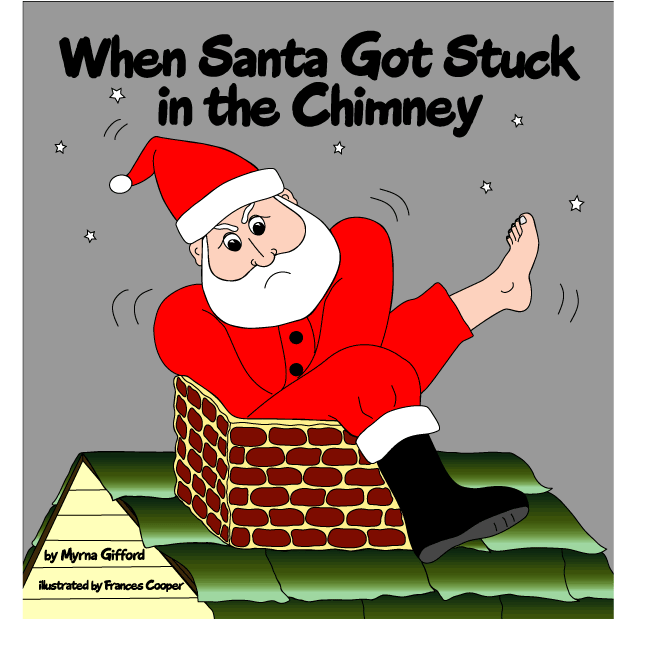
Page3
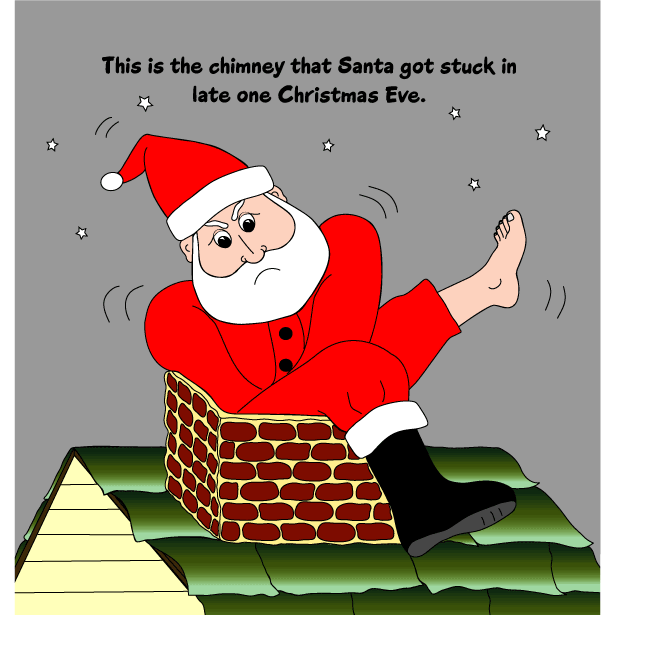
Page 4
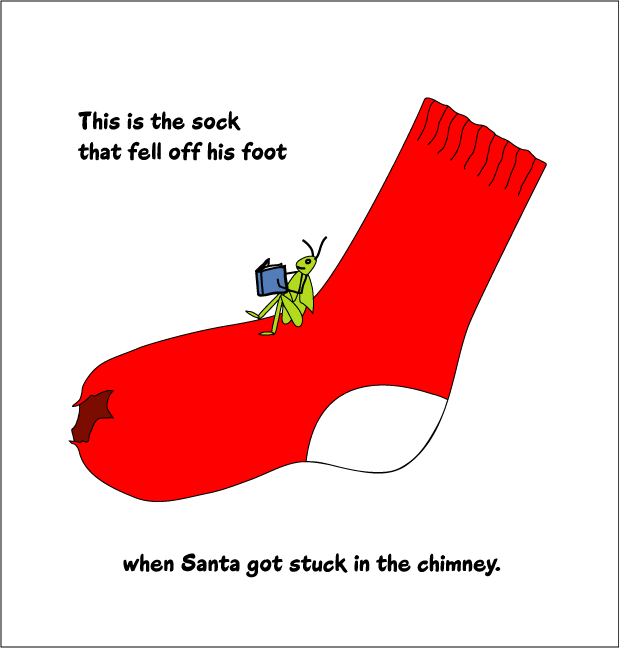
Page 5
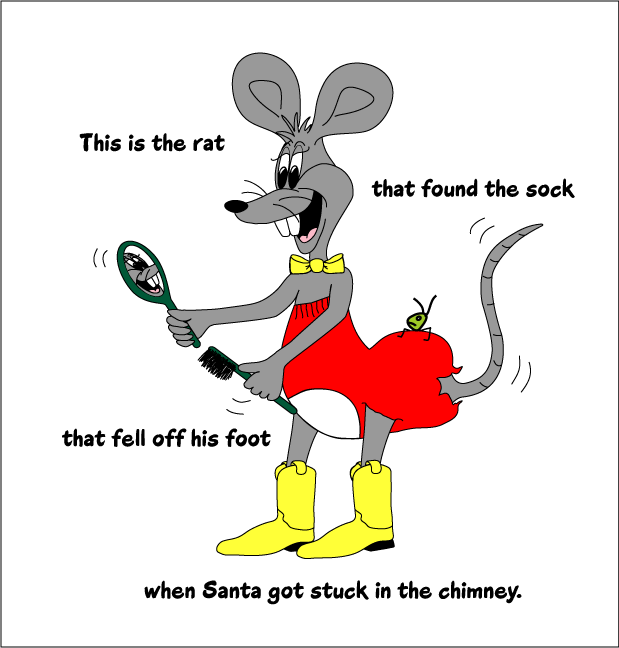
Page 6
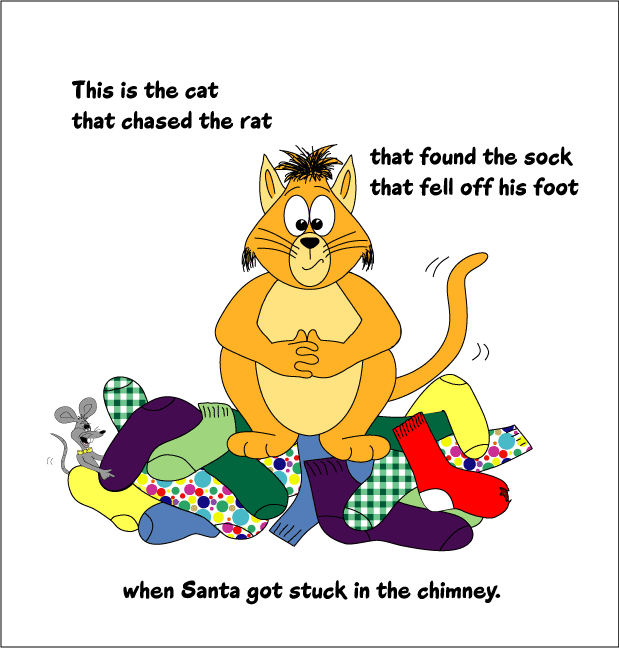
Try to continue (Փորձեք շարունակել)
December 04-06
Lesson 1
Get ready to write a “Test” based on adjectives.
Revision: Adjectives, comparatives, Superlatives(Գրելու ենք ինքնաստուգում ածականների վերաբերյալ, համեմատական, գերադրական աստիճան)
Lesson 2

Write about your birthday. How was your birthday?
November 27-29
Lesson 1
Topic “Birthdays”
Learn:
| Day of the week | Day abbreviation – short form |
|
Monday |
Mon |
Read and learn the days of the week and months
| Writing dates: |
Saying dates: | Writing dates: | Saying dates: |
|
1st May |
the first of May |
May 1 |
May the first |
When is your birthday?
It’s on August 3rd.
Remember: we say on the first(1st), on the second(2nd), on the third(3rd) of November, but on the forth(4th) ….. ……. …… ….. on the twentieth(20th), on the twenty first(21st), twenty second(22nd), twenty third(23rd), but twenty forth(24th) …… ……. …… twenty ninth(29th).
Press and do the activity
Match(համապատասխանեցրեք: Սկզբում աջ սյունակի թվերին սեղմեք և համապատասխանեցրեք ձախ սյունակին)
Age, Birthday months
Lesson 2
Read and listen CD 1(02)
What’s the date today?
It’s the 21st.
Oh! Today’s my aunt’s birthday.
Really? Yesterday was my father’s birthday.
When is your birthday?
It’s on August 3rd.
When is your birthday?
My birthday was three weeks ago.
I didn’t know that! Happy birthday!
Words to know: date, really, ago
Make up a similar dialogue and publish on your blog!
Learn to introduce in the class.
November 13-15
Lesson 1
We are learning Past Simple Tense(Անցյալ ժամանակ)
-
Read about the grammar rule.(Կարդացեք կանոնները)
-
Play the two grammar games to help you practise.(Խաղացեք ներքևի 2 խաղերը և սովորեք)
Press and watch the video. (Սեղմեք և դիտեք տեսանյութը). The text is below:

Words to learn
do-did
have-had
go-went
think-thought(մտածել, կարծել)
catch-caught(բռնել)
get-got(ստանալ, հասնել)
ride-rode(վարել)
Lesson 2
Make a similar dialogue and learn.Publish on your blogs.(Նմանատիպ երկխոսություն կազմեք՝ հարցնելով զրուցակցին իր հանգստյան օրերի մասին, հրապարակեք բլոգում և սովորեք):
Դասարանում կատարելու ենք նաև երկխոսության առաջադրանքները:
Ուսումնական Աշուն՝ հոկտեմբերի 31-նոյեմբերի 3
4-5-րդ դասարան՝ <Աշնանային…>
October 23-25
Lesson 1
Write about your “Family, Professions”. Compare your family members: who is taller than …., who is smarter, who is the most intelligent, ……………… .
New words: a cheetah(հովազ),a polar bear(բևեռային արջ), of them all(ամենից, բոլորից), ever(երբևէ), fight(կռվել).
Workbook: pg. 33-C,D, pg. 34-A,B
Lesson 2

Learn the new words.
Workbook: pg. 35-A,B, 36-A,B
October 16-18
Lesson 1
Համեմատիր՝

Learn and compare(Սովորի՛ր և համեմատիր)

Write about your “Family, Professions”. Compare your family members: who is taller than …., who is smarter, who is the most intelligent, ……………… .
Lesson 2

Learn:
good-better-the best(լավը-ավելի լավը-ամենալավը)
bad-worse-the worst(վատը-ավելի վատը-ամենավատը)

Who’s=who is(ո՞վ է)

October 9-11
Lesson 1
Test(Գրելու ենք ինքնաստուգում):
Թեմա՝ <Մասնագիտություններ>
Կրկնեք մասնագիտությունները
- Հարցերին ճիշտ պատասխանել՝
What do you want to be?(What does he want to be?)
I want to be an astronaut. (He wants to be an astronaut).
Do you want to be a scientist?(Does he want to be a scientist?)
No, I don’t (Yes, I do)./No, he doesn’t (Yes, he does).
School subjects (Դպրոցական առարկաների անվանումները, որն է սիրելի առարկան դպրոցում):
October 2-4
Lesson 1
Listen and practice the school subjects(pg. 29):

Listen CD1(69), the chant and then write down about your favourite subject:
Workbook: pg. 26(A,B), pg. 27(C,D)
Remember(Հիշե՛ք): Who(ով), What (ինչ), Where(որտեղ), Why(ինչու):
Lesson 2
Grammar practice: Comparatives and Superlatives(Սեղմեք և կատարեք)
Մենք ածականների համեմատական և գերադրական աստիճանները ցույց տալու համար միավանկ ածականներին ավելացնում ենք ‘-er’ , և ‘-est’:
small(փոքր) – smaller(ավելի փոքր) – the smallest(ամենափոքր)
‘ier’ և ‘-iest’ ավելացնում ենք ‘y’-ով վերջացող երկվանկանի ածականներին, երբ ‘y’-ից առաջ ունենք բաղաձայն: Այս դեպքում ‘y’-ը դուրս է գալիս:
happy(ուրախ) – happier(ավելի ուրախ) – the happiest(ամենաուրախ)
Բազմավանկ ածականների համեմատական աստիճանը կազմում ենք՝ օգտագործելով ‘more’: (beautiful – more beautiful :գեղեցիկ-ավելի գեղեցիկ), իսկ գերադրականը՝ ‘the most’-ի օգնությամբ: ( beautiful– the most beautiful:ամենագեղեցիկ).
Listen CD 1(65). Practice the dialogue.

September 25-27
Lesson 1
Դասարանում սկսել ենք կատարել` 
Նախադասությունները կազմել են բլոգում, եթե կիսատ է մնացել, շարունակեք տանը:
Տանը՝
Սեղմեք այս հղումին և կատարեք առաջադրանքները:
- Կազմեք հարցեր և պատասխանեք(make questions and answer)
- Choose the right answer.(Ընտրիր ճիշտ պատասխանը)
Workbook: Pg. 22-A,B, Pg 23-C,D.
Lesson 2

Workbook: Pg. 24-A,B, pg. 25-C,D
September 16-20
Lesson 1


Workbook: pg. 20, ex. A, B, pg. 21, ex. C, D.
Lesson 2

Workbook: pg, 22, ex. A, B, pg. 23, ex. C, D.
September 11-13
Learn Professions
Play the Quiz and learn Professions
Read the dialogue and act it out(ներկայացնելու եք բանավոր)
Jim: Katy, what do you whant to be? I mean what profession?
Katy: I want to be a singer. What about you? What do you want to be?
Jim: I want to be a firefighter.
Katy: What does a firefighter do?
Jim: He stops fires and helps people.
Katy: Great idea! You should follow your dream and be what you want.
Jim: Thanks Katy!
Answer the Question
-
What does Katy want to be?
-
What does Jim want to be!
-
What does a firefighter do?
-
What do you want to be? Why? What does he(she) do?
September 2-6
Yes/No answers
Acting out our <Food> dialogue:
Would you like some soup?
No, thank you.
Would you like some ham?
Yes, please.
Help yourself.
Thank you.
You are welcome!










